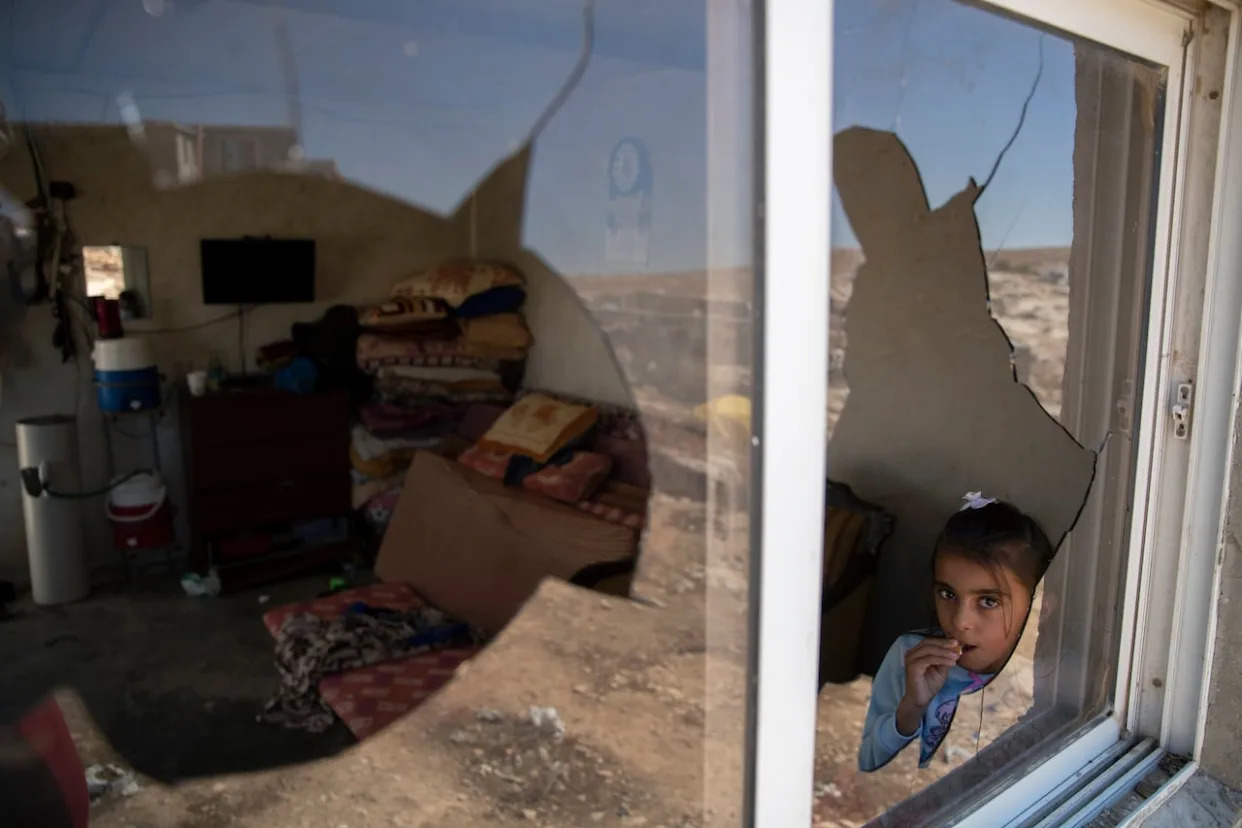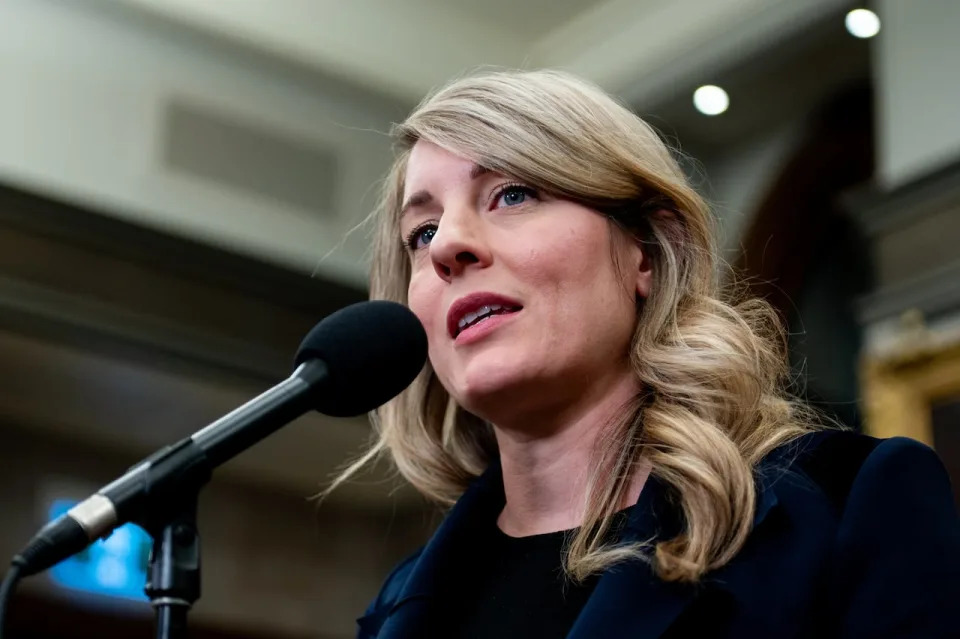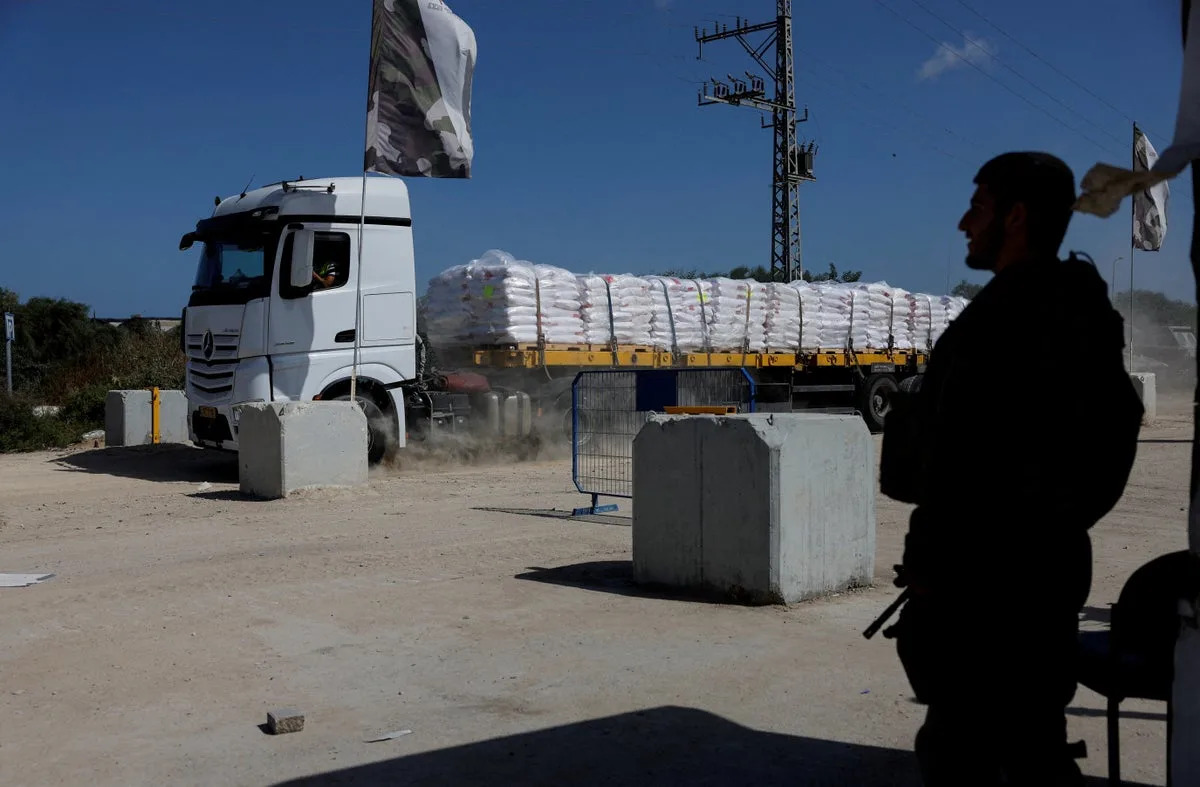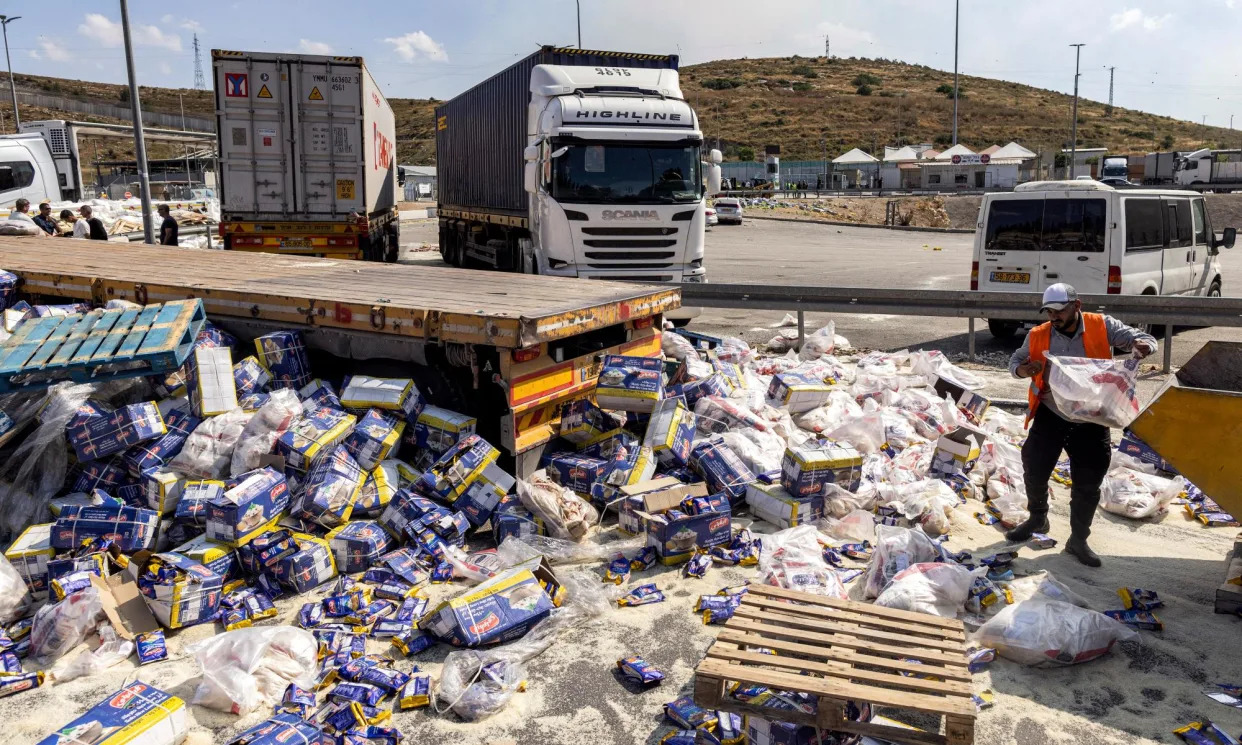Jared Kushner’s Latest Massive Foreign Investment Deal Sparks Uproar
Talia Jane
Thu, May 16, 2024
NEW REPUBLIC

Jared Kushner secured a massive $500 million contract with the state of Serbia to build a hotel on the memorialized ruins of a former military base in Belgrade, The New York Times reported Thursday.
The announcement of the contract reportedly provoked protests in Belgrade against the deal, which is being bankrolled by Kushner’s Saudi-backed investment company, Affinity Partners. In defense of the contract, a Serbian government official described Kushner’s company primarily funded by foreign interests as a “reputable American company.”
“The government of Serbia has chosen a reputable American company as a partner in this venture, which will invest in the revitalization of the former Federal Secretariat for National Defense complex,” the statement read. The deal with Kushner’s company inked by Serbian officials includes a 99-year lease to convert the site into a luxury hotel, commercial space, and over 1,500 residential units.
This is one of the biggest investment deals Kushner has landed while his father-in-law, Donald Trump, runs for president.
Prior to approval of the contract, public officials in Serbia heavily opposed the deal for its insensitivity and potential for political manipulation. Serbian politician Borko Stefanovic described the location as “one of the pearls of pre-war architecture” to The Daily Beast, noting, “Most Serbs believe this site should not be desecrated in any way.”
A petition was launched in Serbia against the contract with Kushner in late March that generated 10,000 signatures in a matter of hours and over 25,000 within days, according to The Daily Beast. The location has long been sought after by Trump and his acolytes: In 2013, Trump expressed interest in turning the site into a hotel. In 2020, while serving as a diplomat for Trump, Richard Grenell—who joins Kushner on this contract—suggested “repairing” the complex.
The Yugoslav Ministry of Defense military complex was bombed by NATO forces in 1999 during a U.S.-backed campaign that killed an estimated 2,000 civilians and lasted until the Yugoslav Army retreated from Kosovo during the Kosovo War. The prospect of a U.S. company building anything on the site was described by Politico as “if the Taliban wanted to build a luxury apartment compound on the site of New York’s Twin Towers.”

Jared Kushner secured a massive $500 million contract with the state of Serbia to build a hotel on the memorialized ruins of a former military base in Belgrade, The New York Times reported Thursday.
The announcement of the contract reportedly provoked protests in Belgrade against the deal, which is being bankrolled by Kushner’s Saudi-backed investment company, Affinity Partners. In defense of the contract, a Serbian government official described Kushner’s company primarily funded by foreign interests as a “reputable American company.”
“The government of Serbia has chosen a reputable American company as a partner in this venture, which will invest in the revitalization of the former Federal Secretariat for National Defense complex,” the statement read. The deal with Kushner’s company inked by Serbian officials includes a 99-year lease to convert the site into a luxury hotel, commercial space, and over 1,500 residential units.
This is one of the biggest investment deals Kushner has landed while his father-in-law, Donald Trump, runs for president.
Prior to approval of the contract, public officials in Serbia heavily opposed the deal for its insensitivity and potential for political manipulation. Serbian politician Borko Stefanovic described the location as “one of the pearls of pre-war architecture” to The Daily Beast, noting, “Most Serbs believe this site should not be desecrated in any way.”
A petition was launched in Serbia against the contract with Kushner in late March that generated 10,000 signatures in a matter of hours and over 25,000 within days, according to The Daily Beast. The location has long been sought after by Trump and his acolytes: In 2013, Trump expressed interest in turning the site into a hotel. In 2020, while serving as a diplomat for Trump, Richard Grenell—who joins Kushner on this contract—suggested “repairing” the complex.
The Yugoslav Ministry of Defense military complex was bombed by NATO forces in 1999 during a U.S.-backed campaign that killed an estimated 2,000 civilians and lasted until the Yugoslav Army retreated from Kosovo during the Kosovo War. The prospect of a U.S. company building anything on the site was described by Politico as “if the Taliban wanted to build a luxury apartment compound on the site of New York’s Twin Towers.”
Protests are planned in Serbia against a real estate project financed by Trump's son-in-law Kushner
DUSAN STOJANOVIC
Updated Fri, May 17, 2024
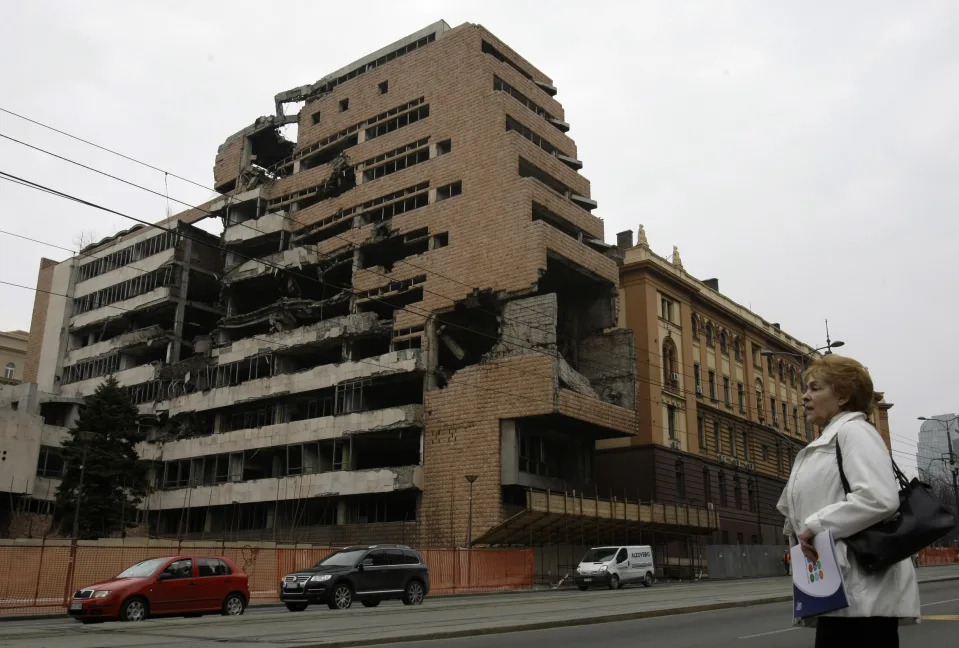
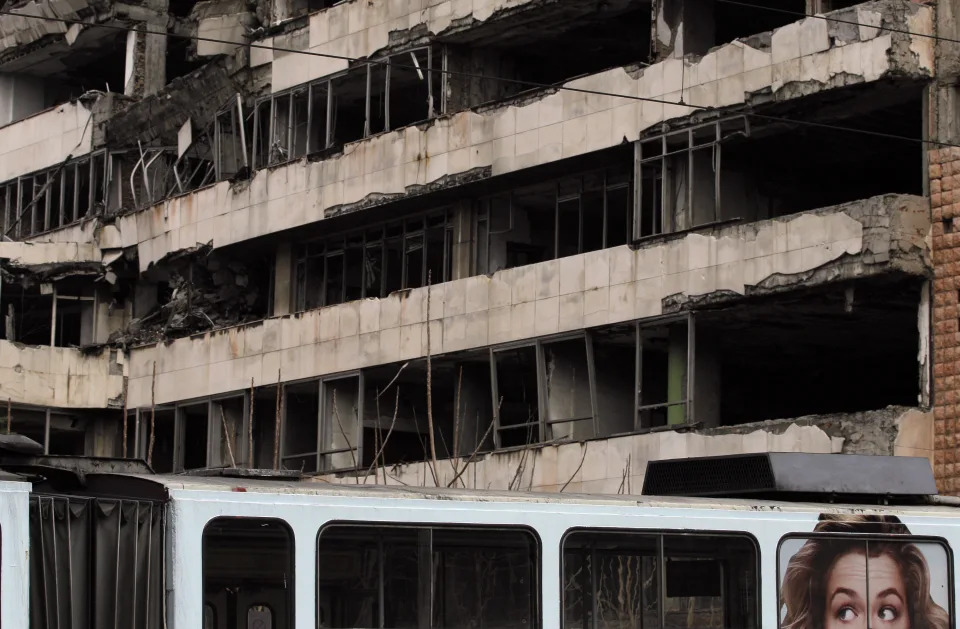
A tram car passes by former Serbian army headquarters, destroyed during NATO's bombing campaign in Belgrade, Serbia, March 24, 2013. Opposition groups in Serbia are planning protests against a real estate development project that will be financed by the firm of Donald Trump's son-in-law, Jared Kushner, at the site of the former Serbian army headquarters destroyed in a U.S.-led NATO bombing campaign in 1999. The Serbian government earlier this week signed a deal with a Kushner-related company for the 99-year lease of land in central Belgrade for the "revitalization" of the bombed-out buildings. (AP Photo/Darko Vojinovic, File)
BELGRADE, Serbia (AP) — Opposition groups in Serbia are planning protests against a real estate development project that will be financed by the firm of Donald Trump’s son-in-law, Jared Kushner, at the site of the former Serbian army headquarters destroyed in a U.S.-led NATO bombing campaign in 1999.
The Serbian government earlier this week signed a deal with a Kushner-related company for the 99-year lease of land in central Belgrade for the “revitalization” of the bombed-out buildings. Kushner has confirmed reports that his company plans to finance the $500-million project. It would feature a high-rise hotel, a luxury apartment complex, office spaces and shops.
“The economic progress in Serbia over the past decade has been impressive,” Kushner said in a statement confirming the approval of the deal. “This development will further elevate Belgrade into the premier international destination it is becoming.”
Government officials have welcomed the project, but opposition groups and many in the general public have spoken out against it.
For many, the site of the bombed-out army command building is a potent symbol of Serbia’s resistance against what they call “NATO aggression” 25 years ago.
Serbian forces fought a 1998-99 war with ethnic Albanian separatists in Kosovo, which was then a Serbian province. About 13,000 people, mostly ethnic Albanians, died until a 78-day, U.S.-led NATO bombing campaign pushed Serbian troops out of Kosovo.
Kosovo declared independence in 2008, but the government in Belgrade doesn’t recognize its neighbor as a separate country.
The leader of the Ecological Uprising opposition group, Aleksandar Jovanović, announced that the organization “will use all means, including physical” to defend the demolition of the old General Staff building and the handover to an American company.
“The moment the first bulldozers appear, we will be waiting for them,” Jovanović said at a press conference and called on all citizens to join them, especially members of the Serbian Armed Forces, “all those who have the courage to defend the old General Staff and not allow this crime to happen.”
Government officials defended the deal that was signed with Kushner's Affinity Partners company on Wednesday.
“We will restore the building 25 years after it was destroyed in the bombing,” construction minister Goran Vesić said. "For a quarter of a century, no one, before this Government, had thought to rebuild the complex. When this space is revitalized, it will contribute to the development of Belgrade and Serbia.”
He said that a bombing memorial will be built at the site, financed by the investor.
Earlier this year, the Albanian tourism ministry acknowledged it received an investment project application from Affinity Partners to turn a former military base on Sazan Island in the Adriatic Sea into a resort. Prime Minister Edi Rama said Albania was proud to have attracted such interest.

Serbia Approves Contract With Jared Kushner for Hotel Complex
Eric Lipton
Updated Thu, May 16, 2024

Serbia Approves Contract With Jared Kushner for Hotel Complex
WASHINGTON — The Serbian government has approved a contract with Jared Kushner on plans to build a luxury hotel on the site of the former Defense Ministry in Belgrade, putting him directly into business with a European state as his father-in-law, Donald Trump, vies to return to the White House.
Kushner is pursuing the $500 million hotel project in partnership with Richard Grenell. A former Trump administration aide, Grenell first proposed that U.S. investors attempt to redevelop the long-vacant bombed-out site of the former Yugoslav Ministry of Defense while Grenell was still a diplomat, serving as a special envoy to the Balkans.
The deal, which provoked protests in Belgrade on Thursday, is with an affiliate of Kushner’s Affinity Partners, the 3-year-old, $3 billion investment fund backed by the sovereign wealth fund of Saudi Arabia.
“The government of Serbia has chosen a reputable American company as a partner in this venture, which will invest in the revitalization of the former Federal Secretariat for National Defense complex,” a Serbian government official said in a statement released Wednesday.
The complex was bombed in 1999 by NATO forces with the backing of the United States during the war Serbia was then waging with Kosovo. It is now considered a prime undeveloped real estate site in the middle of a much-changed city, and Trump himself considered building a hotel on it in 2013.
For Kushner, who is also planning two luxury hotel projects in neighboring Albania, these deals in the Balkans are among the largest he has made since starting his investment firm.
“The economic progress in Serbia over the past decade has been impressive,” Kushner said in a statement confirming the approval of the deal. “This development will further elevate Belgrade into the premier international destination it is becoming.”
The projects in Serbia and Albania both involve direct concessions from the governments there, meaning Kushner will be financially benefiting from foreign government acts potentially while his father-in-law is in the White House, even as these overseas officials might seek actions by the United States, such as support for Serbia’s bid to join the European Union.
The investments Kushner is making — with business partners in Israel, Dubai, United Arab Emirates, Brazil, Germany and the United States, among other locations — are also backed by a fund where the bulk of the money comes from the Saudi government, again creating questions about potential conflicts of interest if Trump returns to office, ethics lawyers said.
“It is a conflict of interest in the most stark sense: The president of the United States needs to be advancing the interest of the United States and not the financial interests of family members,” said Adav Noti, executive director of Campaign Legal Center, which tracks ethics issues in the federal government.
In total, 99% of the money placed with Kushner’s firm by investors has come from foreign sources, according to a filing with the Securities and Exchange Commission in late March. Kushner says his overseas investments will not constitute a conflict of interest, as he has said that he does not plan to return to the White House if Trump is reelected.
Kushner and his partners plan to build a hotel, retail space and more than 1,500 residential units. The approved plan includes a museum and memorial complex to those injured or killed during the NATO bombings. The memorial will be owned and managed by the government and designed “in collaboration with Serbian architects,” Kushner’s company said in a statement.
Kushner is working with a longtime real estate partner on the Serbia project, Asher Abehsera, who will oversee the actual development. “Reconstruction does not only mean building buildings, but also building bridges between cultures, respecting the past and creating the foundation for a prosperous future,” Abehsera said in a statement.
Grenell, in a prior interview, said his original proposal from the time he was in the Trump administration and his current involvement in the project reflect his belief that the United States should help rebuild the site that it had played a role in bombing 25 years ago. He said the redevelopment could be part of a “healing” of relations between the two countries.
The Serbian government, in its own statement, said it would retain ownership of the site and that the investor group, Affinity Global Development, has a set period of time to complete the project, or the land will be returned to the government’s control.
But the approval of the contract — which includes a 99-year lease and an agreement to share profits from the development of the three-block area with the Serbian government — has drawn criticism from opposition leaders in the Serbian parliament, among others.
Protesters blocked traffic in front of the former Defense Ministry headquarters Thursday and put up signs questioning the decision, including some that said: “Stop Giving Army HQ as a Present to American Offshore Companies.”
Some in Serbia object to the plan because of the United States’ role in the bombing 25 years ago.
“Somebody is trying to clear up the mess that they did, and they are not those who should do anything in this place,” said Dragan Jonic, a member of parliament, who participated in the protest Thursday. “We’ll use all the legal means and civil disobedience to stop this.”
The project also has drawn attention from House Democrats who asked Republicans on the House Oversight and Accountability Committee to investigate the proposed deals, though there has been no movement by Republicans to do so.
“Jared Kushner is pursuing new foreign business deals, just as Donald Trump becomes the presumptive Republican nominee for the presidency,” Reps. Jamie Raskin, D-Md., and Robert Garcia, D-Calif., wrote in March, after The New York Times disclosed details of the planned projects.
Kushner, in an interview, has said that as a private citizen he has the right to pursue international real estate and business deals, even if they involve foreign governments.
But Kushner has played a role in the background, advising a nonprofit set up by backers of Trump that already is working on Trump’s possible transition back to the White House.
“One of the reasons I think firms like us as investors, they know that if Affinity comes in we’re a mark of kosher,” Kushner said in an interview in March. “Because again, we’re a highly scrutinized firm. We operate very professionally.”
DUSAN STOJANOVIC
Updated Fri, May 17, 2024


A tram car passes by former Serbian army headquarters, destroyed during NATO's bombing campaign in Belgrade, Serbia, March 24, 2013. Opposition groups in Serbia are planning protests against a real estate development project that will be financed by the firm of Donald Trump's son-in-law, Jared Kushner, at the site of the former Serbian army headquarters destroyed in a U.S.-led NATO bombing campaign in 1999. The Serbian government earlier this week signed a deal with a Kushner-related company for the 99-year lease of land in central Belgrade for the "revitalization" of the bombed-out buildings. (AP Photo/Darko Vojinovic, File)
BELGRADE, Serbia (AP) — Opposition groups in Serbia are planning protests against a real estate development project that will be financed by the firm of Donald Trump’s son-in-law, Jared Kushner, at the site of the former Serbian army headquarters destroyed in a U.S.-led NATO bombing campaign in 1999.
The Serbian government earlier this week signed a deal with a Kushner-related company for the 99-year lease of land in central Belgrade for the “revitalization” of the bombed-out buildings. Kushner has confirmed reports that his company plans to finance the $500-million project. It would feature a high-rise hotel, a luxury apartment complex, office spaces and shops.
“The economic progress in Serbia over the past decade has been impressive,” Kushner said in a statement confirming the approval of the deal. “This development will further elevate Belgrade into the premier international destination it is becoming.”
Government officials have welcomed the project, but opposition groups and many in the general public have spoken out against it.
For many, the site of the bombed-out army command building is a potent symbol of Serbia’s resistance against what they call “NATO aggression” 25 years ago.
Serbian forces fought a 1998-99 war with ethnic Albanian separatists in Kosovo, which was then a Serbian province. About 13,000 people, mostly ethnic Albanians, died until a 78-day, U.S.-led NATO bombing campaign pushed Serbian troops out of Kosovo.
Kosovo declared independence in 2008, but the government in Belgrade doesn’t recognize its neighbor as a separate country.
The leader of the Ecological Uprising opposition group, Aleksandar Jovanović, announced that the organization “will use all means, including physical” to defend the demolition of the old General Staff building and the handover to an American company.
“The moment the first bulldozers appear, we will be waiting for them,” Jovanović said at a press conference and called on all citizens to join them, especially members of the Serbian Armed Forces, “all those who have the courage to defend the old General Staff and not allow this crime to happen.”
Government officials defended the deal that was signed with Kushner's Affinity Partners company on Wednesday.
“We will restore the building 25 years after it was destroyed in the bombing,” construction minister Goran Vesić said. "For a quarter of a century, no one, before this Government, had thought to rebuild the complex. When this space is revitalized, it will contribute to the development of Belgrade and Serbia.”
He said that a bombing memorial will be built at the site, financed by the investor.
Earlier this year, the Albanian tourism ministry acknowledged it received an investment project application from Affinity Partners to turn a former military base on Sazan Island in the Adriatic Sea into a resort. Prime Minister Edi Rama said Albania was proud to have attracted such interest.
Serbia Approves Contract With Jared Kushner for Hotel Complex
Eric Lipton
Updated Thu, May 16, 2024
Serbia Approves Contract With Jared Kushner for Hotel Complex
WASHINGTON — The Serbian government has approved a contract with Jared Kushner on plans to build a luxury hotel on the site of the former Defense Ministry in Belgrade, putting him directly into business with a European state as his father-in-law, Donald Trump, vies to return to the White House.
Kushner is pursuing the $500 million hotel project in partnership with Richard Grenell. A former Trump administration aide, Grenell first proposed that U.S. investors attempt to redevelop the long-vacant bombed-out site of the former Yugoslav Ministry of Defense while Grenell was still a diplomat, serving as a special envoy to the Balkans.
The deal, which provoked protests in Belgrade on Thursday, is with an affiliate of Kushner’s Affinity Partners, the 3-year-old, $3 billion investment fund backed by the sovereign wealth fund of Saudi Arabia.
“The government of Serbia has chosen a reputable American company as a partner in this venture, which will invest in the revitalization of the former Federal Secretariat for National Defense complex,” a Serbian government official said in a statement released Wednesday.
The complex was bombed in 1999 by NATO forces with the backing of the United States during the war Serbia was then waging with Kosovo. It is now considered a prime undeveloped real estate site in the middle of a much-changed city, and Trump himself considered building a hotel on it in 2013.
For Kushner, who is also planning two luxury hotel projects in neighboring Albania, these deals in the Balkans are among the largest he has made since starting his investment firm.
“The economic progress in Serbia over the past decade has been impressive,” Kushner said in a statement confirming the approval of the deal. “This development will further elevate Belgrade into the premier international destination it is becoming.”
The projects in Serbia and Albania both involve direct concessions from the governments there, meaning Kushner will be financially benefiting from foreign government acts potentially while his father-in-law is in the White House, even as these overseas officials might seek actions by the United States, such as support for Serbia’s bid to join the European Union.
The investments Kushner is making — with business partners in Israel, Dubai, United Arab Emirates, Brazil, Germany and the United States, among other locations — are also backed by a fund where the bulk of the money comes from the Saudi government, again creating questions about potential conflicts of interest if Trump returns to office, ethics lawyers said.
“It is a conflict of interest in the most stark sense: The president of the United States needs to be advancing the interest of the United States and not the financial interests of family members,” said Adav Noti, executive director of Campaign Legal Center, which tracks ethics issues in the federal government.
In total, 99% of the money placed with Kushner’s firm by investors has come from foreign sources, according to a filing with the Securities and Exchange Commission in late March. Kushner says his overseas investments will not constitute a conflict of interest, as he has said that he does not plan to return to the White House if Trump is reelected.
Kushner and his partners plan to build a hotel, retail space and more than 1,500 residential units. The approved plan includes a museum and memorial complex to those injured or killed during the NATO bombings. The memorial will be owned and managed by the government and designed “in collaboration with Serbian architects,” Kushner’s company said in a statement.
Kushner is working with a longtime real estate partner on the Serbia project, Asher Abehsera, who will oversee the actual development. “Reconstruction does not only mean building buildings, but also building bridges between cultures, respecting the past and creating the foundation for a prosperous future,” Abehsera said in a statement.
Grenell, in a prior interview, said his original proposal from the time he was in the Trump administration and his current involvement in the project reflect his belief that the United States should help rebuild the site that it had played a role in bombing 25 years ago. He said the redevelopment could be part of a “healing” of relations between the two countries.
The Serbian government, in its own statement, said it would retain ownership of the site and that the investor group, Affinity Global Development, has a set period of time to complete the project, or the land will be returned to the government’s control.
But the approval of the contract — which includes a 99-year lease and an agreement to share profits from the development of the three-block area with the Serbian government — has drawn criticism from opposition leaders in the Serbian parliament, among others.
Protesters blocked traffic in front of the former Defense Ministry headquarters Thursday and put up signs questioning the decision, including some that said: “Stop Giving Army HQ as a Present to American Offshore Companies.”
Some in Serbia object to the plan because of the United States’ role in the bombing 25 years ago.
“Somebody is trying to clear up the mess that they did, and they are not those who should do anything in this place,” said Dragan Jonic, a member of parliament, who participated in the protest Thursday. “We’ll use all the legal means and civil disobedience to stop this.”
The project also has drawn attention from House Democrats who asked Republicans on the House Oversight and Accountability Committee to investigate the proposed deals, though there has been no movement by Republicans to do so.
“Jared Kushner is pursuing new foreign business deals, just as Donald Trump becomes the presumptive Republican nominee for the presidency,” Reps. Jamie Raskin, D-Md., and Robert Garcia, D-Calif., wrote in March, after The New York Times disclosed details of the planned projects.
Kushner, in an interview, has said that as a private citizen he has the right to pursue international real estate and business deals, even if they involve foreign governments.
But Kushner has played a role in the background, advising a nonprofit set up by backers of Trump that already is working on Trump’s possible transition back to the White House.
“One of the reasons I think firms like us as investors, they know that if Affinity comes in we’re a mark of kosher,” Kushner said in an interview in March. “Because again, we’re a highly scrutinized firm. We operate very professionally.”
SEE














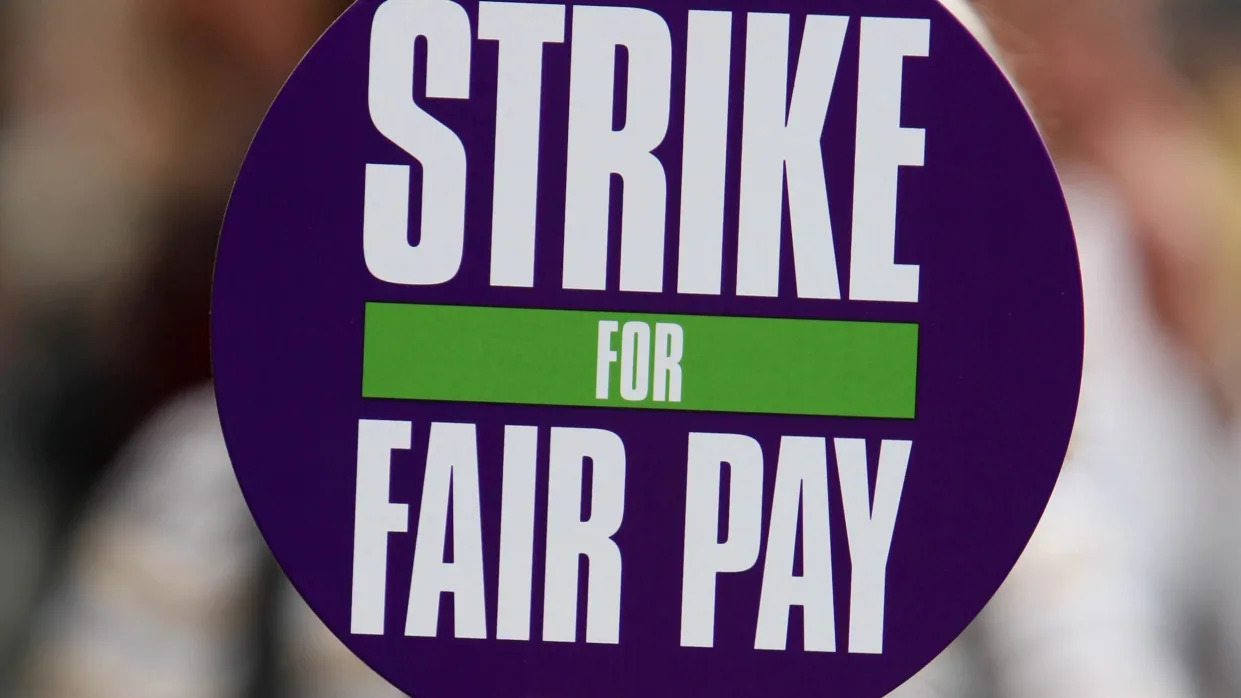

.jpg)




